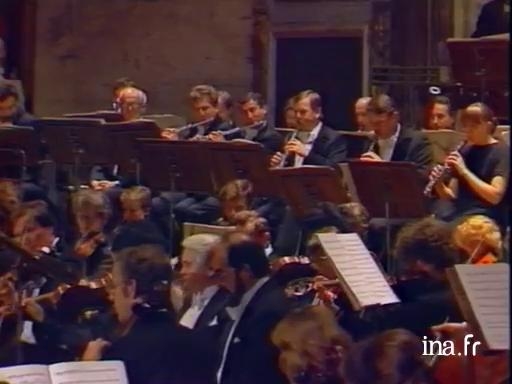Krzysztof Penderecki at the La Chaise Dieu festival

Information
On the occasion of the 20th Chaise Dieu festival, rehearsal of Penderecki's Polish Requiem, interpreted by the Cracow philharmonic orchestra and choir.
- Europe > France > Auvergne > Haute-Loire
- Europe > Italy
- Europe > Poland
- North America > United States
Context
Born in 1933 in Debica to a music-loving family, Krzysztof Penderecki studied music at the Krakow Conservatoire and soon became a professor. His works soon followed:Anaklasis,Threnody to the Victims of Hiroshima? His musical language is modern and even brutal, but always expressive. With hisStabat Mater, then hisSt. Luke Passion, or hisDies Irae, he reached the status of international composer. This can be explained by a long evolution: Penderecki's music, which didn't deny previous research, became more lyrical, more easily accessible and it was marked by a return of the religious. He also wrote operas: The Devils of Loudon, Paradise Lost, Ubu Rex and Polish Requiem, eight symphonies to this day, chamber music and numerous vocal pieces... Holder of uncountable awards, Krzysztof Penderecki is one of the major figures of contemporary Polish, and world, music.




